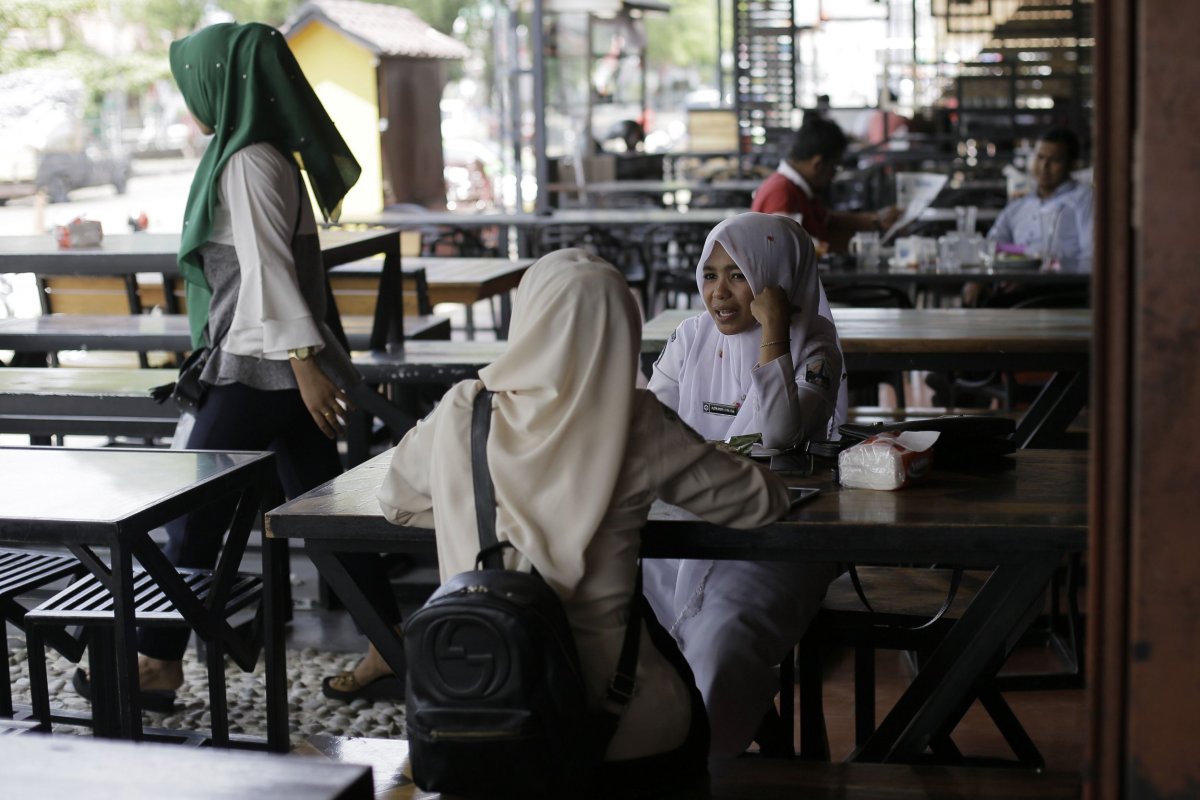Men and women in the Indonesian province of Aceh are no longer allowed to dine together unless they are married or related, an official announced on Wednesday.
"The objective is to protect women's dignity so they will feel more comfortable, more at ease, more well behaved and will not do anything that violates Syariah (Islamic law)," The Straits Times cited Jufliwan, the head of the local Bireuen sharia agency.

The Aceh province is the only region in the country where sharia is enforced, thanks to a 1999 law.
"However, we can't punish them as this is only a suggestion, not a regulation that carries a punishment," Jufliwan said.
The directive, which was sent to coffee shops, cafes and restaurants throughout the region, also stated that women would not be allowed to visit such establishments past 9 p.m. unless they are accompanied by a spouse or a male relative.
"We are concerned that some parties could interpret the circular (directive) according to their own wishes. Can the big buses that pass through Bireuen still enjoy its culinary offerings at night?" a local women's activist, Arabiyani, said according to The Jakarta Post, voicing her concern that the measure would scare people and keep them from visiting coffee shops for fear of raids.
The Aceh province has gained attention for whipping people who have been found guilty of crimes under Sharia law, including gambling, drinking and same-sex relations.
More than a dozen people were publicly flogged in July for committing adultery or being drunk, among other violations of Sharia law. The caning took place outside of a mosque as hundreds of people watched. Two men accused of being gay were whipped 87 times, the harshest out of all the punishments.
Human Rights Watch condemned the law in a 2016 report. "[Sharia law] violates fundamental principles of international human rights, including the rights to life and freedom from torture or cruel, inhuman, or degrading treatment or punishment," the document read.
Two women were publicly caned in Malaysia on Monday in a similar incident for attempting same-sex relations. The two women received the punishment after pleading guilty last month.
"To inflict this brutal punishment on two people for attempting to engage in consensual, same-sex relations is an atrocious setback on the government's efforts to improve its human rights records," said Rachel Chhoa-Howard, a researcher for Amnesty International Malaysia, according to Deutsche Welle.
Uncommon Knowledge
Newsweek is committed to challenging conventional wisdom and finding connections in the search for common ground.
Newsweek is committed to challenging conventional wisdom and finding connections in the search for common ground.
About the writer
To read how Newsweek uses AI as a newsroom tool, Click here.








